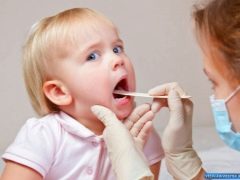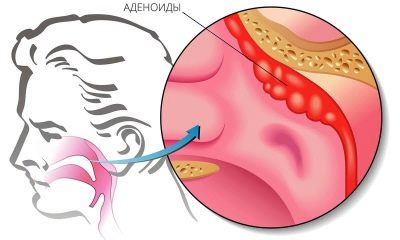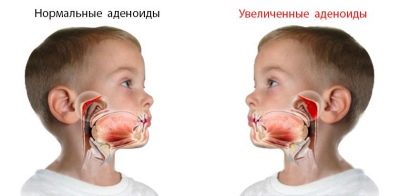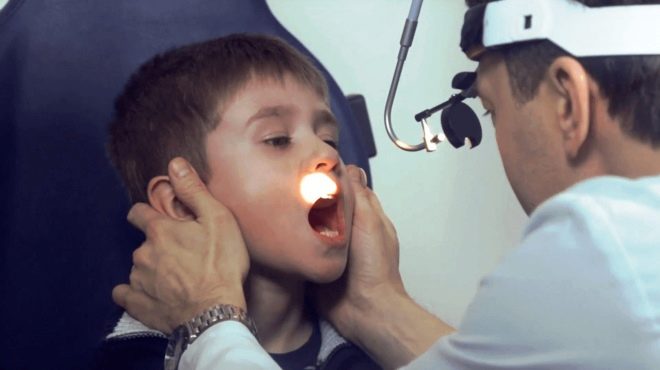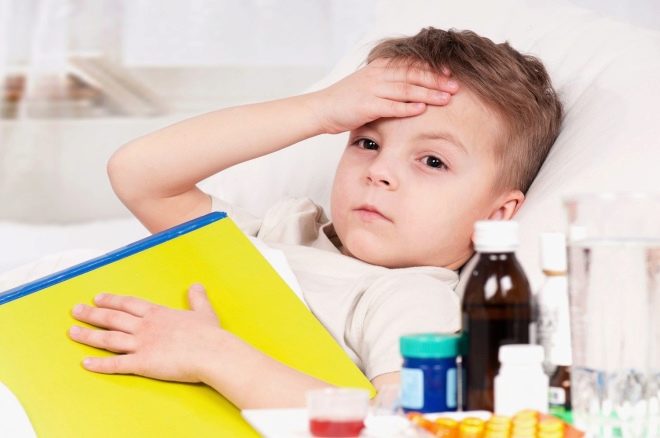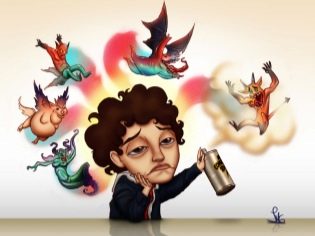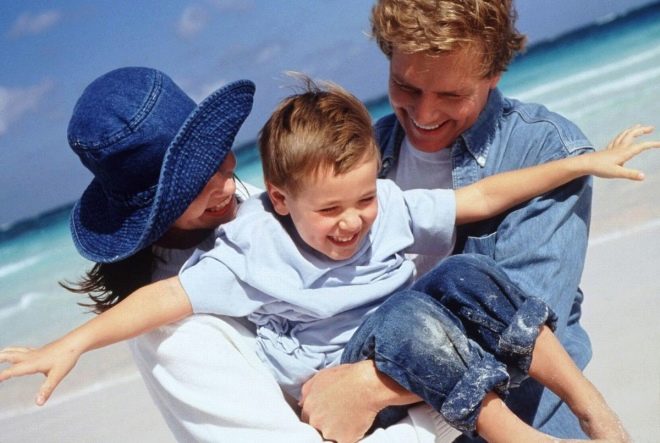Psychosomatics of adenoids in children
Adenoiditis is one of the most common "childhood" diseases. In adults, this problem does not occur. Very often, children's doctors cannot explain why a particular pharyngeal tonsil has developed in a particular child. Parents only receive a list of appointments or referrals for surgery. At the same time, psychosomatics as knowledge will help to avoid unpleasant illness.
General information about the disease
In medicine, adenoids or adenoiditis are called pathological enlargement of the pharyngeal tonsil. It consists of lymphoid tissue and performs protective functions - it stops the movement of pathogenic bacteria, viruses, fungi. During flu illness, for example, the pharyngeal tonsil may increase, but after recovery it becomes normal.
In some children, the amygdala is enlarged out of touch with the disease itself. The growth of lymphoid tissue is recognized as pathological, it leads to difficulty or complete disappearance of nasal breathing.
Most often, enlarged adenoids occur in children aged 3 to 7 years.
The causes of the development of the pathology of medicine are not precisely known. In all, viruses and bacteria are considered guilty, as well as previous respiratory diseases..
There are several degrees of ailment, and if at the first and second degrees nasal breathing is partially preserved, although difficult, at 3 degrees it is completely absent. In addition, hearing can be reduced, there is no sense of smell, the child begins to "nudge" because the tone of his voice changes.
The kid tries to breathe only with his mouth, which significantly increases the likelihood of pulmonary and bronchial pathologies, he does not sleep well at night, and can snore. Because of the need to constantly breathe through the mouth, the child has a special expression on his face, his ability to learn, attention, and interpersonal skills decrease.
Grades 1–2 of adenoiditis are usually treated conservatively, with grade 3, an operation to remove overgrown lymphoid tissue is indicated. pharyngeal tonsil. Conservative treatment is very often inconclusive.
Psychosomatic causes
Psychologists, psychotherapists and pediatricians have long been interested in the question of why viruses and bacteria equally affect all children, and adenoid vegetations are not found in all. Talk about individual predisposition is not necessary, because adenoids are not inherited.
Frequently sick children are not the reason either, because among them there is a large percentage of children who, although often ill, do not suffer from adenoiditis.
Psychosomatic medicine, located at the intersection of psychology, physiology and anatomy, claims that the child is always trying to communicate with the adenoids something to the world.
If the parents hear and understand, the problem will be solved, the reverse development of the amygdala will occur, as it happens after a normal viral disease in a healthy baby. If they do not hear and will continue to intensively treat the child for adenoiditis, then one cannot do without surgery.
From the point of view of psychosomatics, the pharyngeal tonsil as part of the human lymphatic system performs the function of a nightman, a scavenger. It collects all unnecessary and removes from the body, it is the first barrier against viruses and bacteria. Negative emotions and thoughts of psychosomatics are treated like rubbish. They also need to be collected and displayed in a timely manner..
If a child does not cope with an abundance of his own negative thoughts, if too many of them accumulate, then the pharyngeal tonsil begins to grow rapidly in order to have time to recycle a large amount of "garbage".
When adults hear about such a concept as negative thoughts in children, they become perplexed - how can babies have so much negative?
Let's look at what the true causes of adenoids in a child can be.
Maternal fears and anxiety. Experienced pediatricians even have a special term - restless mother syndrome. These mothers are worried about every pimple on the skin of the baby, they immediately run to the doctor for an appointment, most of their experiences are made up, frivolous fears. The child feels this excessive anxiety and regards it as the only correct way - as a threat to his existence. If the mother starts to treat the toys with an antiseptic, repeats about the danger of puddles and flowers in the yard, about the dangers of street animals, then the kid risks not only to get the growth of the glands in response to the threat from the outside, but also to become an allergic.
Family scenes. If the child has a heightened sensitivity of the nervous system and a gentle psyche, then for him the real threat from the outside becomes family scenes, conflicts and scandals of the parents. If the psychological background in the family is unfavorable, then the child has no choice but to defend on his own. How can he do this? Physically - almost nothing. But his immunity defender comes in response to anxiety on alert, and among the first the pharyngeal tonsil begins to grow.
Thus, in children who feel threatened from the outside (real or contrived by their parents), the growth of adenoids has an exclusively protective mechanism.
How to be treated?
Understanding and discovering the psychosomatic cause of the adenoids does not at all relieve parents of the need to comply with medical appointments. Psychological work must be carried out in parallel with the treatment., then the result will be faster and more positive.
Very often a child with adenoids needs a good child psychologist. Since the prerequisites are usually created by the parents themselves, this specialist should work not only with the baby, but also with his parents.
It is very important to make the child cease to be silent and start talking about everything that disturbs him, what scares and what he fears. It is necessary to understand what the baby is trying to defend itself from by the growth of lymphoid tissue.
Parents showing correction of home relations. If the scandals and quarrels can not be stopped, you should think about the separate living of the child with one of the parents, at least for a while.
The baby should feel loved, protected, desired.. Hug a child more often - in the ring of mother's hands, children at any age return subconsciously at a time when they were very small, and their hands were the borders of a safe world. Highly it is important to praise the child more often, to express to him more often words of love and appreciation for what it is.
Read more about the psychosomatic causes of adenides in children, says the expert in the video below.
